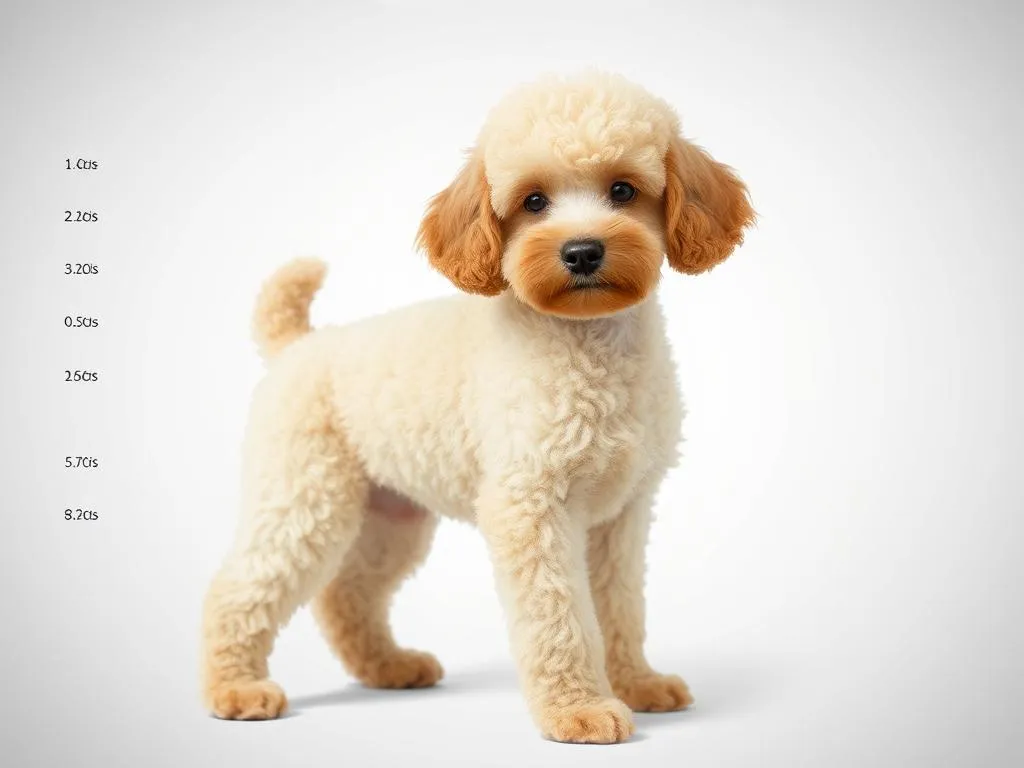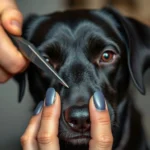
Introduction
When it comes to dog health care, understanding the unique needs of your furry friend is paramount. Each breed comes with its own set of characteristics, health concerns, and care requirements. Among the small dog breeds, toy poodles are particularly popular due to their charming personalities and intelligence. With their playful nature and hypoallergenic coats, they’ve won the hearts of dog lovers around the world.
One of the key aspects of caring for your toy poodle involves understanding their size, weight, and overall growth patterns. This information is crucial not only for ensuring that your pet remains healthy but also for preventing potential health issues that can arise from improper care. In this article, we will delve into the essential aspects of toy poodle health care, focusing on their characteristics, common health problems, nutrition, exercise, grooming, and the importance of regular veterinary check-ups.
Understanding Toy Poodles
Breed Characteristics
Toy poodles are one of the three poodle sizes, which include standard and miniature. What sets toy poodles apart is their small stature, typically weighing between 4 to 6 pounds and standing about 10 inches tall at the shoulder. Their curly, hypoallergenic coat is not only adorable but also requires regular grooming to maintain its health.
Temperamentally, toy poodles are known for their intelligence and sociable nature. They are eager to please and excel in obedience training. This breed is also known for being affectionate and forming strong bonds with their owners, making them excellent companions.
Common Health Issues
While toy poodles are generally healthy, they are predisposed to certain genetic health issues. Some of the most common concerns include:
- Hip Dysplasia: A malformation of the hip joint that can lead to arthritis.
- Eye Problems: Conditions such as cataracts and progressive retinal atrophy are more frequent in this breed.
- Dental Issues: Due to their small mouths, toy poodles are at a higher risk for dental problems.
Because of these predispositions, regular vet check-ups are essential for early detection and management of health issues.
Toy Poodle Size and Weight
Standard Size and Weight Parameters
The toy poodle size is officially defined by breed standards set by organizations like the American Kennel Club (AKC). Adult toy poodles typically weigh between 4 to 6 pounds. Maintaining this ideal weight is crucial for their health, as being underweight or overweight can lead to various health complications.
Growth Chart for Toy Poodles
Understanding the growth chart for toy poodles can help owners keep track of their puppy’s development. Below is a general outline of the weight milestones at various ages:
| Age (Months) | Weight (Pounds) |
|---|---|
| 1 | 1 – 2 |
| 2 | 2 – 3 |
| 3 | 3 – 4 |
| 4 | 4 – 5 |
| 6 | 5 – 6 |
| 12 | 4 – 6 |
This chart provides a helpful guideline for monitoring growth. It’s important to remember that individual growth may vary based on genetics and care.
Factors Influencing Size and Weight
Several factors can influence a toy poodle’s size and weight, including:
- Genetics: The lineage of your poodle can greatly affect its size and susceptibility to certain health issues.
- Nutrition: A balanced diet is essential for healthy growth. Poor nutrition can lead to stunted growth or obesity.
- Exercise: Regular physical activity helps maintain a healthy weight and prevents obesity-related issues.
Nutrition and Diet for Toy Poodles
Nutritional Needs
Proper nutrition is vital for the health and well-being of your toy poodle. Key nutrients include:
- Proteins: Essential for growth, muscle development, and overall health.
- Fats: Provide energy and support skin and coat health.
- Carbohydrates: Offer a source of energy and aid in digestion.
The recommended daily calorie intake for a toy poodle generally ranges from 200 to 400 calories, depending on their weight and activity level.
Choosing the Right Dog Food
Selecting the right dog food is crucial for your toy poodle’s health. Here are some tips:
- Types of Dog Food: Options include dry kibble, wet food, and raw diets. Each type has its pros and cons, so choose one that suits your dog’s needs.
- Quality Indicators: Look for high-quality ingredients in the first few items on the ingredient list. Nutritional labels can provide insight into the food’s overall quality.
Feeding Schedule for Toy Poodles
Establishing a consistent feeding schedule is essential. For puppies, feeding them three to four times a day is advisable, gradually reducing to two meals a day as they reach adulthood. Portion control is critical; overfeeding can lead to obesity, which is particularly concerning for small breeds like toy poodles.
Exercise and Activity Levels
Importance of Regular Exercise
Regular exercise is crucial for maintaining your toy poodle’s physical and mental health. Benefits include:
- Weight Management: Helps prevent obesity, which can lead to serious health issues.
- Behavioral Health: Regular activity can reduce behavioral problems and anxiety.
Recommended types of exercise for toy poodles include daily walks, playtime, and agility training. These activities can be both fun and beneficial.
Daily Exercise Routines
For toy poodles, a daily exercise routine may include:
- Puppies: 20-30 minutes of playtime or short walks.
- Adults: 30-60 minutes of active play or walking.
Engaging activities that stimulate both the body and mind, such as puzzle toys or agility courses, can greatly enhance your poodle’s overall well-being.
Grooming and Dental Care
Grooming Needs
Toy poodles require regular grooming due to their curly coats, which can mat easily. A consistent grooming schedule includes:
- Brushing: At least once a week to prevent mats and tangles.
- Bathing: Every 3-4 weeks, depending on their activity level.
- Professional Grooming: Every 6-8 weeks for a more thorough groom.
Dental Health
Dental care is often overlooked but is crucial for toy poodles. Common dental issues include tartar buildup and gum disease. To maintain dental hygiene:
- Tooth Brushing: Brush your poodle’s teeth at least twice a week with dog-specific toothpaste.
- Dental Chews: Provide dental chews to help reduce plaque and promote dental health.
Regular Health Check-ups
Importance of Veterinary Visits
Routine veterinary visits are essential for maintaining your toy poodle’s health. A typical visit should include:
- Vaccination Schedule: Ensure your poodle is up-to-date on vaccinations, including rabies, distemper, and parvovirus.
- Routine Health Screenings: Regular tests for heartworm, blood work, and general health assessments help catch any issues early.
Recognizing Signs of Illness
Being aware of the signs of illness in your toy poodle can lead to early intervention. Common symptoms to watch for include:
- Changes in Appetite: Sudden increases or decreases can indicate health problems.
- Lethargy: Unusual tiredness or lack of energy may signal an underlying issue.
- Coughing or Difficulty Breathing: These symptoms should prompt immediate veterinary care.
Conclusion
In summary, providing optimal health care for your toy poodle involves understanding their unique needs concerning size, weight, and growth. Regular veterinary check-ups, a balanced diet, consistent exercise, and grooming are all vital components of their health management. By being proactive in these areas, you can ensure that your toy poodle lives a long, happy, and healthy life.
In the end, owning a toy poodle is a joyous experience, filled with love and companionship. By prioritizing their health and well-being, you can fully enjoy the delightful journey that comes with having a toy poodle as part of your family.
FAQs
What is the average weight of a toy poodle?
The average weight of an adult toy poodle typically ranges from 4 to 6 pounds.
How often should I groom my toy poodle?
Toy poodles should be groomed at least once a week, with professional grooming every 6-8 weeks.
What are the signs of obesity in toy poodles?
Signs of obesity in toy poodles include difficulty in feeling their ribs, lack of energy, and an inability to perform normal activities.
How much exercise does a toy poodle need daily?
Adult toy poodles require approximately 30-60 minutes of exercise per day, while puppies need about 20-30 minutes.
Are toy poodles prone to specific health issues?
Yes, toy poodles can be predisposed to health issues such as hip dysplasia, eye problems, and dental issues. Regular vet check-ups are essential for early detection.









